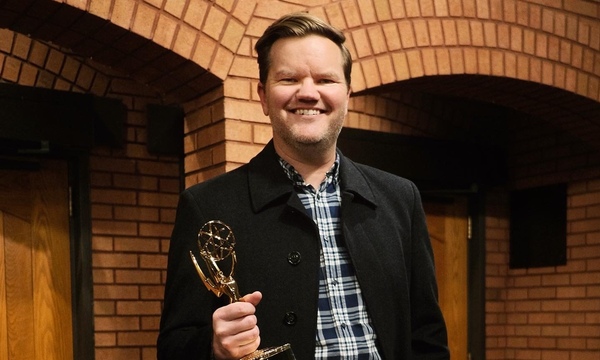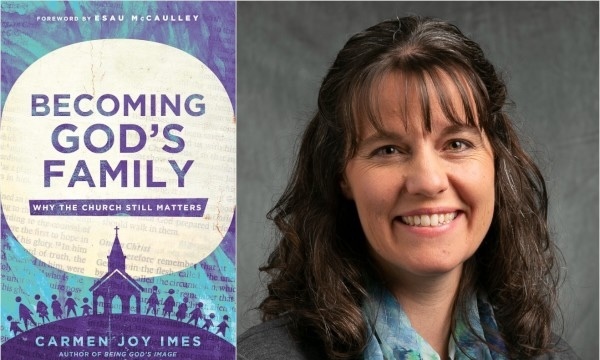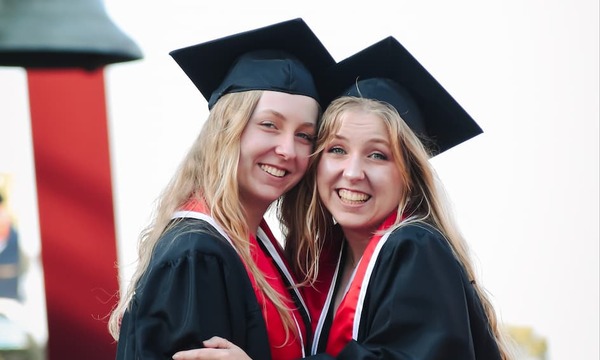Paul Spears started working with the Torrey Honors Institute at Biola University 14 years ago, when the program fit into one shared office in Sutherland Hall. When he was introduced to Torrey’s core commitments of a Christian education that centered on the great books, mentoring, and discussion-based classes, he knew he had found an academic home. He has always been insatiably curious, and he grew up wearing a path to his local library—checking out as many books as the law allowed. It’s fitting that this electrician’s son whose desire for knowledge led him to read the family encyclopedias (after he’d read through all the books he borrowed from the library) would become a university professor, and recently be named as Torrey’s director.
Spears understands education as a means of equipping students to think confidently and use reason to rigorously justify the beliefs they hold. He sees excellent teaching as an amalgam of instructing, modeling, mentoring and pastoring. One month into his new role, Spears shares some of his background, the intricacies of his philosophy and the importance of not being afraid to make mistakes.
What would you say are some of the strengths of Biola University’s Torrey Honors Institute and how do you fit in as the director of the great books program?
I am inquisitive by nature, and teaching has always been a logical extension of this fact. When my wife had breast cancer (she has been in remission for over 5 years), I almost immediately started reading everything I could about the condition and her treatment options, as I wanted to be able to help her get the best treatment possible. I am fascinated by the world of ideas, and I find great satisfaction in helping my students develop philosophical and theological criteria by which they can effectively analyze claims and arguments made by the world around them. I believe that as Christians it is our responsibility to be intellectually rigorous. Torrey was founded on that belief. C. S. Lewis in Mere Christianity says the Lord “wants every bit of intelligence we have to be alert at its job, and in first class fighting trim.” The Apostle Peter in I Peter 3 talks of being ready to make justified arguments about the hope that we have. Torrey is, and will continue to be, an institution that is committed to the pursuit of intellectual rigor in service of God’s kingdom.
How would you describe the concept of the intellectual life within God’s kingdom?
God made us rational beings, and he expects us to engage the world around us thoughtfully, in a manner that most accurately corresponds to reality. Education’s task is to enable students to effectively and efficiently gain a set of intellectual tools that equip them to respond to the chaotic and fallen world that we find ourselves in. We study and refine our intellectual skills, which allows us to see the beauty of God’s creation, and that, in and of itself, glorifies God. My children have been in both home school and private school, and I impress on them the importance of having a correct understanding as to why we become educated.
What we shouldn’t do is allow the pursuit of intellectual rigor to be an end unto itself. It should always be understood as a tool that is subservient to God and his kingdom. You can easily get caught up in performing well academically and allow that to become an idol in your life.
Many universities measure their success by how many students they get into prestigious academic or professional programs. We don’t measure ourselves solely by those standards. While it is true that many of our students attend graduate programs at, for example, Oxford and Yale, we also believe that we are radically successful when our students serve as midwives in sub-Saharan Africa. We believe that the training they get in Torrey will give them the tools to flourish as believers whether they are managing a medical crisis in a clinic in the third world or an ethical one in a prestigious investment firm. A trained intellect is a big help in managing a crisis, but ultimately what matters is surrendering your whole self to Christ, and knowing that you can’t do anything without him.
I hear you just returned from Cambridge. What were you doing there?
For the last three years, Torrey professor Fred Sanders and I (along with our families) have traveled to Cambridge, where we have taught a group of 30 or more Torrey students. It gives us an opportunity to expose the students to the rich intellectual and theological history of Cambridge University as we read authors such as Charles Simeon, William Wilberforce, Tennyson, F.F. Bruce and C.S. Lewis. You can see the intellectual history of evangelical Christianity in Cambridge and the impact evangelical Christianity had on British society at large in terms of events like the abolitionist movement. It is not until your read Wilberforce that you begin to comprehend how foundational his Christian faith was to his pursuit of abolition. This is only one example of how students experience the marriage of faith and intellect in the writings of Cambridge authors.
Additionally, we live an academic life in community while at Cambridge. The students and the faculty live in close proximity with one another, and this allows for a more organic academic setting. Discussion happens all the time outside of the classroom setting, and Dr. Sanders and I are often modeling being fathers, husbands and professors in ways that are more effective than any set lectures we ever could give.
What is important for students to understand as they embark on the journey of higher education?
What all students need to learn is that education is about making mistakes. If you are not making mistakes you are not pushing yourself to your academic limit. So many students live their lives terrified of failing, so they don’t ask questions in class and don’t go out on any intellectual limbs so that they can avoid being wrong. They have learned through the modern academic culture (probably by the time they are in second grade) that being wrong is bad. But, really what you want to know is what it is you don’t know. If you’re terrified of finding out what your academic limitations are, then you can’t really pursue an intellectual life. Academic life is inherently personal, but students need to learn that the Lord still loves them even if they struggle understanding Aristotle’s Metaphysics.
Read more about Paul Spears.
Search Biola's experts directory and get to know other faculty.
For more information, contact Jenna Bartlo, Media Relations Coordinator, at 562.777.4061 or jenna.l.bartlo@biola.edu.
 Biola University
Biola University
.jpg)

